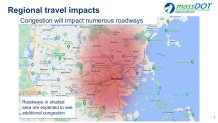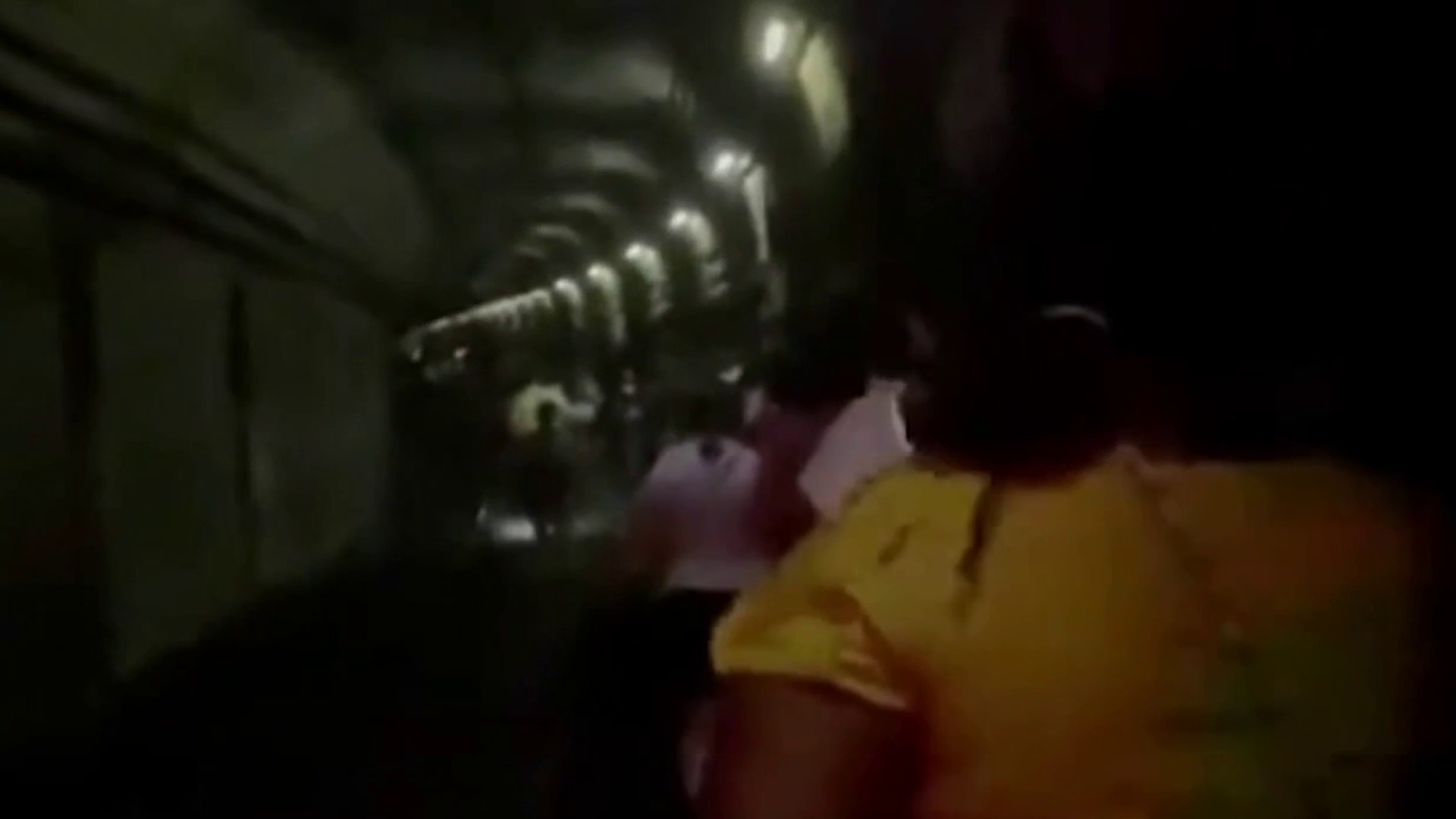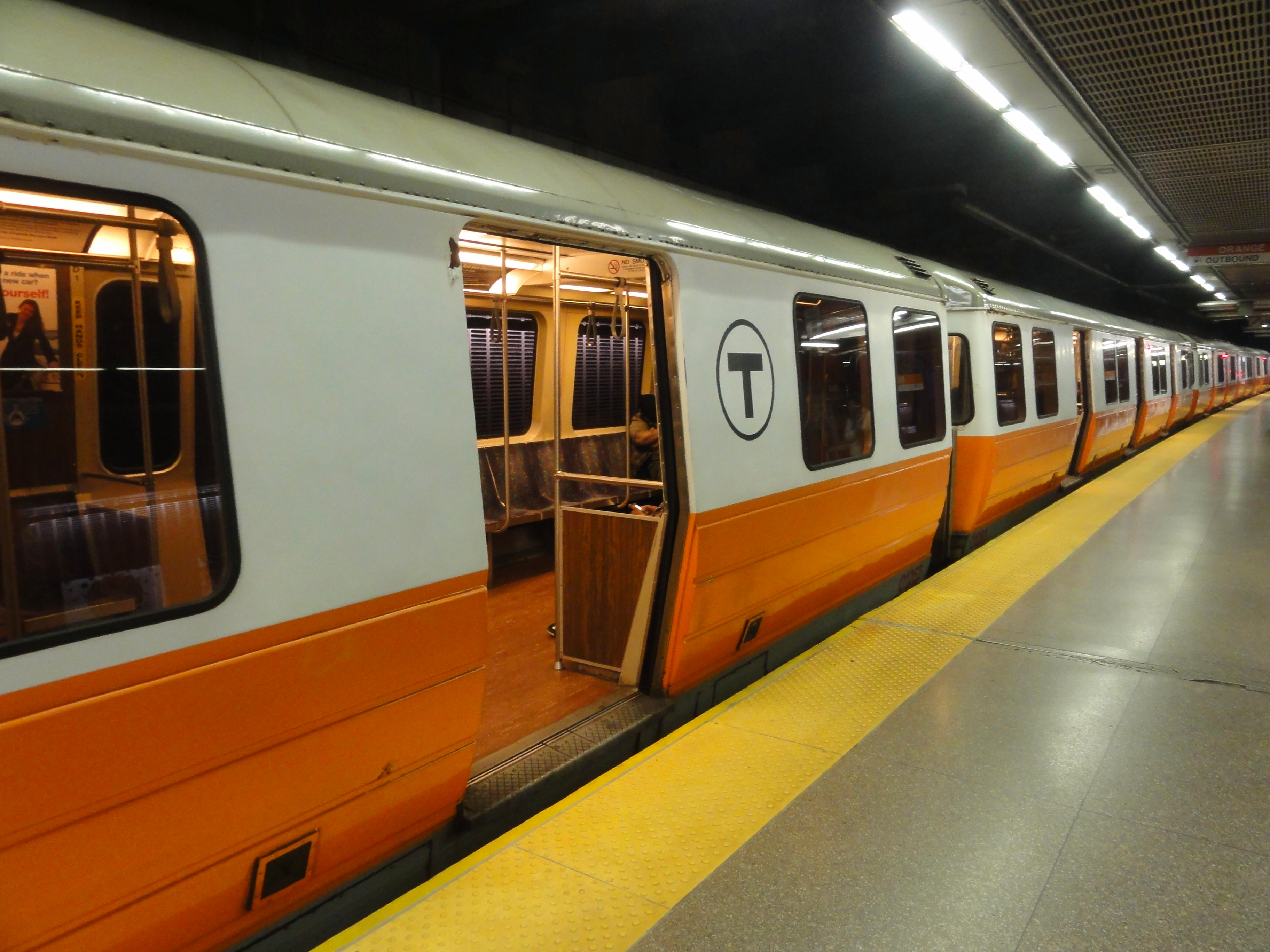The upcoming, unprecedented shutdown of the MBTA Orange Line won't just impact the train's riders, officials warned Monday, it will slow travel on roads across the Boston area as well.
"Traffic congestion is expected to be severe," Massachusetts State Highway Administrator Jonathan Gulliver said at a news conference, urging subway commuters not to take to driving as an alternative. "If possible, avoid the region altogether until the diversion has concluded."
WATCH ANYTIME FOR FREE
Stream NBC10 Boston news for free, 24/7, wherever you are. |
He was one of several state and city officials, including Gov. Charlie Baker and MBTA General Manager Steve Poftak, who spoke at a briefing on the upcoming service disruptions Monday morning. The Orange Line will be shut for 30 days beginning Friday, the longest shutdown of an entire line in the MBTA's history, officials have said.
"We're asking everybody, all travelers, to adjust their commutes if necessary and if they can," Baker said.
Get updates on what's happening in Boston to your inbox. Sign up for our News Headlines newsletter.
Boston Chief of Streets Jascha Franklin-Hodges characterized the situation as a "transit emergency," but one the Wu administration hopes will mark a turning point for transit in Boston and the region.
During the shutdown, crews make much needed repairs to the transit line's infrastructure system around the clock, but its roughly 100,000 daily passengers will need to make other plans for their commutes, whether that be taking a shuttle bus, Commuter Rail, bicycle — Boston will be offering free Bluebike passes during the shutdown — or car.
But officials discouraged Orange Line riders from driving. Gulliver described it as "not a good option," with highways around Boston, Somerville, Chelsea, Everett, Malden, Medford, Revere, Cambridge and Brookline expected to be busier than usual.

Massachusetts Department of Transportation engineers modeled how bad congestion is expected to get in Boston during the morning commute while Orange and Green line service is suspended in August and September. Use the slider to see the before and after.
"All roadway users, whether you drive, bike or walk, you will see changes in your everyday commute, and your commute will likely be longer in these areas," Gulliver said.
Some streets, where bus lanes and new parking for the shuttles are being carved out, will have their capacity "effectively cut in half," he said. Some changes to traffic patterns already kicked in Monday, as new bus lanes were installed in Boston.
Gulliver also warned people walking and bicycling near the Orange Line shuttle buses, which will be charter buses, different from usual city buses, "to be extra-vigilant" around them, since they will have different blind spots and turning radiuses from normal.
Before the announcement of the MBTA's rider diversion plan, revealed Friday — and some details could change —some municipal leaders had grown frustrated with the lack of details.
Free shuttle buses will run between Oak Grove and Government Center and between Back Bay and Forest Hills stations. Downtown, passengers can walk, transfer to the Green Line or use the Silver Line — Poftak said Monday that shuttle service wasn't practical in the cramped area during what he deemed the "Orange Line super-surge."
Asked if he expects the project to finish on schedule, Poftak said his confidence level is "quite high."
Bernine Nicholas, a Roxbury resident who commutes via the Orange Line, said she didn't know how it will go once the changes are in place.
"Like, I have to get to shuttle buses, so that means I have to get up a lot more earlier than usual," she said.
While they may not be looking forward to it, most riders understand why this is happening.
"We can afford one month without the service if the service is going to be improved. That's most important to me," said Bincente LaBron of Mattapan.
While the short term could be painful for commuters, the long-term effects could be beneficial for several reasons.
The Orange Line shutdown will cram five years' worth of night-and-weekend work into 30 days, since crews won't need to spend nearly as much time hauling materials into place and out of it. And the work will leave the line running faster and safer.
Baker also noted that officials have been encouraging cities to implement bus-only lanes, and the adaptations provided by the shutdown offer a natural experiment to prove them.



